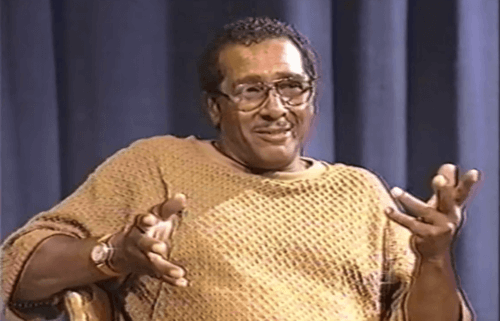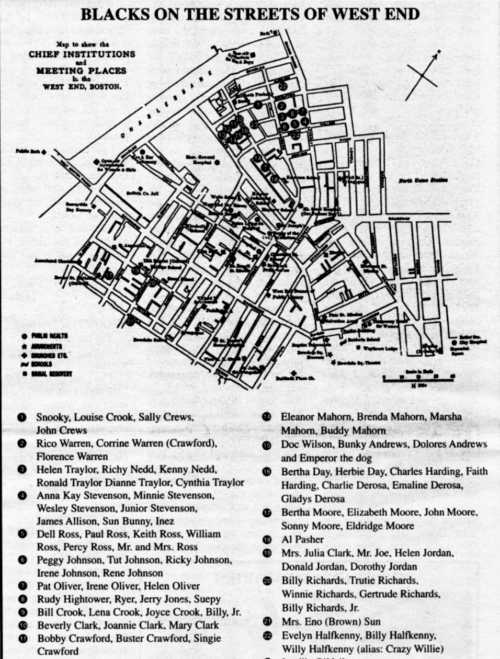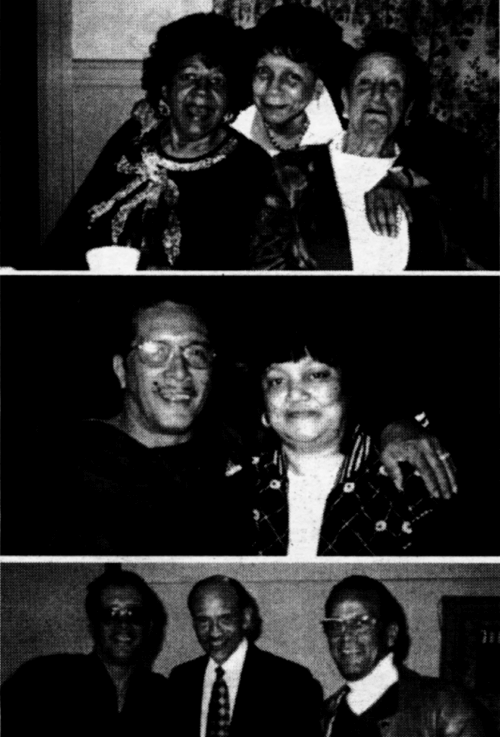Richie Nedd
Richie Nedd was one of the historic West End’s Black residents and a board member of The West End Museum before his passing in 2011. Nedd’s article for the June 1998 issue of The West Ender, “A Black Man’s View of the West End,” features he and other Black residents coming together in reunions of hundreds of West Enders after urban renewal.
Theodore Richard “Richie” Nedd was born in the West End, on Chambers Street, to Helen Nedd (Traylor) on December 24, 1941. Nedd’s mother was white and his father was Black; his mother’s side of the family, living on Barton Street, ostracized her because she married a Black man, and they also held racist attitudes towards Richie. Despite this early experience of bigotry, Richie Nedd had virtually never experienced racial prejudice in the diverse neighborhood of the historic West End. Nedd was highly fond of his experiences growing up in the West End because “everyone was like your family.” Nedd had one brother, Kenneth, and as a child he played cowboys at his friend Rudy Hightower’s house on 32 Spring Street.
Nedd lived in the West End until he was 14 years old, when his family moved out in 1956 to escape the imminent demolition of the neighborhood during urban renewal. Nedd subsequently moved to Arlington, Massachusetts and married Ellen Hillson; they had three children together, Helen, Margaret, and Richard. Over the course of his life, Nedd worked as a corrections’ officer, a union carpenter, and served in the Vietnam War as a Specialist 4th Class in the United States Army. Aside from his work, Nedd was passionate about music and a member of the Mystic Valley Gun Club in Malden, Massachusetts. He also frequented the Juneteenth celebrations held annually at Franklin Park, which spans the neighborhoods of Roxbury, Dorchester, and Jamaica Plain.
Although Richie Nedd was forced out of the West End by urban renewal, that did not discourage him from staying connected with fellow West Enders. Nedd and other former residents reconnected at reunions, such as the one on November 15, 1986 in Revere, where 700 West Enders congregated in the Wonderland Ballroom . Nedd was one of multiple Black West Enders in attendance, and he told a Boston Globe reporter covering the event that “if the West End were still here today, we would have made a mockery of prejudice.” Other former residents agreed that in their experience, racial bigotry was infrequent in the neighborhood, which was home to more than twenty different ethnic groups living and working together. The reunion in Revere was organized by Vincent “Sonny” LoPresti, a West Ender who was inspired by a similar reunion of residents in Roslindale.
In the June 1998 issue of The West Ender, Richie Nedd contributed “A Black Man’s View of the West End.” The article included a map, created by Nedd, showing where the neighborhood’s Black residents lived while he grew up in the West End. It showed that Black people lived not only on the north slope of Beacon Hill (at addresses like Phillips Street), but also closer to North Station and the Charles River. In the article, Nedd described his fondest childhood memories, but concluded with the deep pain he and other West Enders experienced from the effects of urban renewal:
“When they tore down the West End, they not only took me from my home and my friends, they took me from my family and I can’t forgive them.”
Richie Nedd was one of the first board members of The West End Museum, founded by James Campano in 2004, and worked to preserve the history and memories of the neighborhood. In 2010, Nedd expressed to a Boston Globe reporter the significance of keeping West Enders’ memories alive: “We just hope this doesn’t die. I am hoping that they know what we went through.” Nedd passed away on June 16, 2011 after a long battle with illness. His contributions to The West End Museum, and the memory work of The West Ender newsletter, represent a significant chapter in the history of West Enders’ attempts to recover the diverse community that urban renewal displaced.
Article by Adam Tomasi, edited by Bob Potenza
Sources: ProQuest/Boston Globe (Peter Howe, “A Rueful Reunion,” November 17, 1986, page 20); Boston Hospitality and Tourism Industry Blog; Theodore Nedd Obituary; Richie Nedd, “A Black Man’s View of the West End” (The West Ender, June 1998).











